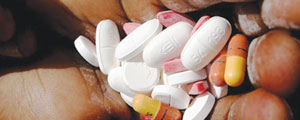
MASVINGO — A senior official in the Ministry of Health and Child Care has disclosed that the country was experiencing a serious shortage of life-saving clinical drugs because the National Pharmaceutical Company of Zimbabwe (NatPharm) was unable to meet demand.
By Tatenda Chitagu/Garikai Tunhira
Addressing a media workshop in Masvingo yesterday, Ropafadzo Hove, the national director for pharmacy services in the Ministry of Health and Child Care said the shortages were so dire that they put the country’s disaster preparedness in limbo.
“The shortage of drugs is not pleasing and for the first quarter of the year, the country had less than 50% stock of life-saving drugs as well as essential drugs. The situation is almost the same now,” she said.
According to the stock status for all medicines at NatPharm as at July 31, the country had 48% stock of life-saving drugs, up from 42% in January.
She said stock of essential drugs dropped from 24% in January to 22% at the end of July this year, adding that ideally the country should maintain at least 60% supplies.
“The needs are high and the resources are few, but as a ministry, we are trying to source adequate supply of drugs. Funding for essential medicines and medical supplies is falling short of requirements,” she said.
Hove said NatPharm was owed $11 million by government, adding that the debt had crippled most of its operations.
- Chamisa under fire over US$120K donation
- Mavhunga puts DeMbare into Chibuku quarterfinals
- Pension funds bet on Cabora Bassa oilfields
- Councils defy govt fire tender directive
Keep Reading
“NatPharm is not capable of procuring the drugs. The ministry owes it $11 million and it’s a moving figure which has accumulated over the years for delivery and storage of other drugs, especially ARVs, supplied by partners. This affects delivery,” she said.
She said the debt was largely for anti-retroviral treatment drugs that were supported by partners who were not able to contribute to the cost of storage and distribution.
NatPharm was set up to store and distribute drugs, but at the present moment cannot carry out the procurement function because of failure to access funding from the lender of last resort.
This has since led to more than “90% dependence on donated drugs”, and Hove said the situation was now “a security threat”.











